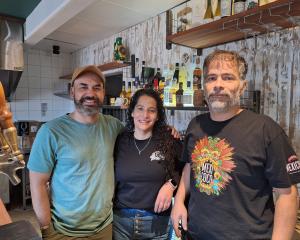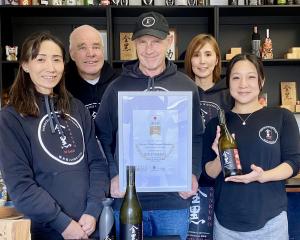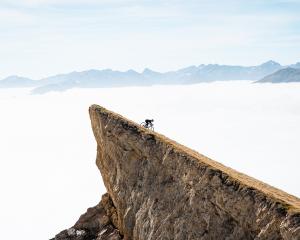Simmering tensions between Queenstown's outdoor enthusiasts and leaseholders of alpine land have boiled over more than once this year. Following a public meeting called last month to solve the issues, Guy Williams looks at whether it has succeeded.
About 120 people turned up to a public meeting in Queenstown on August 25 to air dirty laundry: conflict over accessing recreation reserve land leased by NZSki, operator of Coronet Peak and the Remarkables skifields.
Tensions over access to that land - leased by NZSki from the Department of Conservation (Doc) - has come to a head twice this year.
On June 25, police were called to Coronet Peak to trespass three ski tourers who reportedly refused to leave after staff found them breaking the ski area's safety rules.
Earlier in the year, NZSki and outdoor recreation clubs butted heads after the company exercised its legal right to close the Remarkables access road, citing safety concerns over heavy vehicle traffic servicing the construction of a new skifield base building.
Outdoor recreation clubs criticised the decision, with Federated Mountain Clubs (FMC) president Robin McNeill describing the company's failure to consult first as a ''huge oversight''.
Meeting organiser Erik Bradshaw said although issues involving NZSki got an airing, the company was only a subset of a bigger debate about recreationalists needing a ''stronger voice''.
The Queenstown-based mountaineer and FMC executive member said his main goal was to take a step towards forming a new group representing the full gamut of outdoor activities which could resolve conflict with commercial operators and Doc with collective authority.
Doc's Queenstown office had high-quality staff, but were part of an organisation that was ''broke and confused'' from repeated restructuring and funding cuts.
''If they're dysfunctional and disorganised, you're not getting represented.
''That's why I think recreationalists need to get together to provide the counterbalance to commercial interests.''
The flare-up over the closure of the Remarkables road was a case in point.
''To give NZSki and Doc some leeway, they bungled it and made a mistake because there was no-one on the other side of the table.''
If NZSki chief executive Paul Anderson has any regrets about the company's handling of the road closure, he's not saying so.
He said he talked the issue over at the first opportunity with Mr McNeill, whom he said took a ''mature and responsible'' approach in contrast to that of Mr Bradshaw, who acted like ''a bit of a vigilante''.
Asked if he would change anything about the company's handling of the issue if he could wind the clock back 12 months, he simply said he was ''very open'' to hearing about public access concerns.
But Mr Bradshaw said the first request to NZSki for a meeting over the road closure was a polite one - by Otago Conservation Board chairman Pat Garden to Remarkables ski area manager Ross Lawrence in early January.
His ''point of galvanisation'' was the response that the road would stay closed and there was nothing to discuss.
''There come situations where you need to be a rabble-rouser because being a voice of reason doesn't get you anywhere.''
His plan for a mass protest walk up the road was abandoned only when Mr Anderson and Mr McNeill reached a compromise in early February that involved the company providing a free bus service up the mountain at weekends.
Mr Anderson was pleased to see Mr Bradshaw now working as moderator rather than agitator - ''I'll be interested to see if he sticks to that'' - and welcomed any attempt to get recreational users speaking with a more unified voice.
Doc Queenstown partnerships ranger Chris Hankin said the road wrangle was an unprecedented scenario involving a ''once-in-a-generation'' construction project.
''You had a signature business for Queenstown that employs a lot of people and is a large part of Queenstown's winter economy, a sensitive alpine area that is not accessed by legal road, an emerging group of users in alpine areas, and some legal documents that were produced a long time ago.''
Further complicating matters was a risk of overseas drivers using the road and uncertainty over changes to health and safety legislation.
''I feel that was an unprecedented situation. We just want to move forward, take what we've learned and apply it to similar situations as they come again.''
A keen observer at the meeting was multisport great Steve Gurney, who moved to the resort in 2013.
Gurney said NZSki and its parent company Trojan Holdings might have had a legal right to close the Remarkables road, but mishandled the issue by failing to engage with the community first.
The people behind the company were ''good buggers''.
''So I'm not anti-Trojan Holdings, I'm just gently guiding them and saying, hang on, you need to manage your branding.''
The right of any company to use a piece of public land has to come with ''rock-solid'' conditions for public access, he says.
''One of the things we value in New Zealand - and our reputation and our brand depends on it - is access to beautiful places.
''There's an easy learning from this, and it's not too late to manage that before things get a bit nasty over any future access problem.''
Mr Bradshaw said the outdoor fraternity had to accept a share of the blame for this year's tensions.
Ski tourers had been ignoring ''fair and reasonable'' safety rules at Coronet Peak, while at Soho Basin ski area - a new operation involving skiers being transported up the slopes in snow cat groomers - the vast majority of non-paying skiers had failed to respect the leaseholder's health and safety obligations by ignoring requests to sign disclaimer forms.
To take the moral high ground over public access issues, a core of outdoor users have to be ''doing the right thing''.
He said he planned to call another public meeting about access before next winter, and wanted to encourage the widest possible range of interested parties, including people such as outdoor retailers, to get involved.













